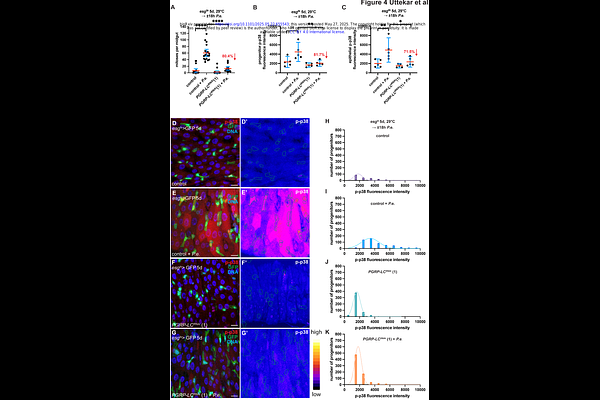Recognition of pathogenic bacteria by intestinal progenitors promotes adult Drosophila midgut regeneration via PGRP-MKK3-p38 signalling.

Recognition of pathogenic bacteria by intestinal progenitors promotes adult Drosophila midgut regeneration via PGRP-MKK3-p38 signalling.
Patel, P. H.; Uttekar, B.; Wafer, R.; Cendanawati, S.
AbstractWhen enteropathogenic bacteria breach the intestinal epithelium, they are recognized by epithelial and immune cells that elicit an intestinal regenerative response. However, less is known about whether and how intestinal progenitors directly detect invading pathogenic bacteria and couple this to their proliferation. Here we show that adult Drosophila midgut progenitors recognise peptidoglycan from pathogenic bacteria through the peptidoglycan recognition proteins, PGRP-LC and PGRP-LE, and translate this to ISC proliferation by stimulating MKK3-p38 signalling. Moreover, we find that PGRP-LC/LE-MKK3-p38 signalling in progenitors regulates p38 activation throughout the midgut epithelium after infection, indicating that progenitors can influence the regenerative niche in a non-cell autonomous manner. Whilst it was previously thought that ISC proliferation in both mammals and flies is driven solely by damage-induced signals after infection, our work reveals that progenitors can directly recognise pathogenic bacteria and mount a strong parallel regenerative response that spreads throughout the midgut epithelium. Increased ISC proliferation after bacterial recognition may also serve as a strategy to repopulate the epithelium with uninfected cells.